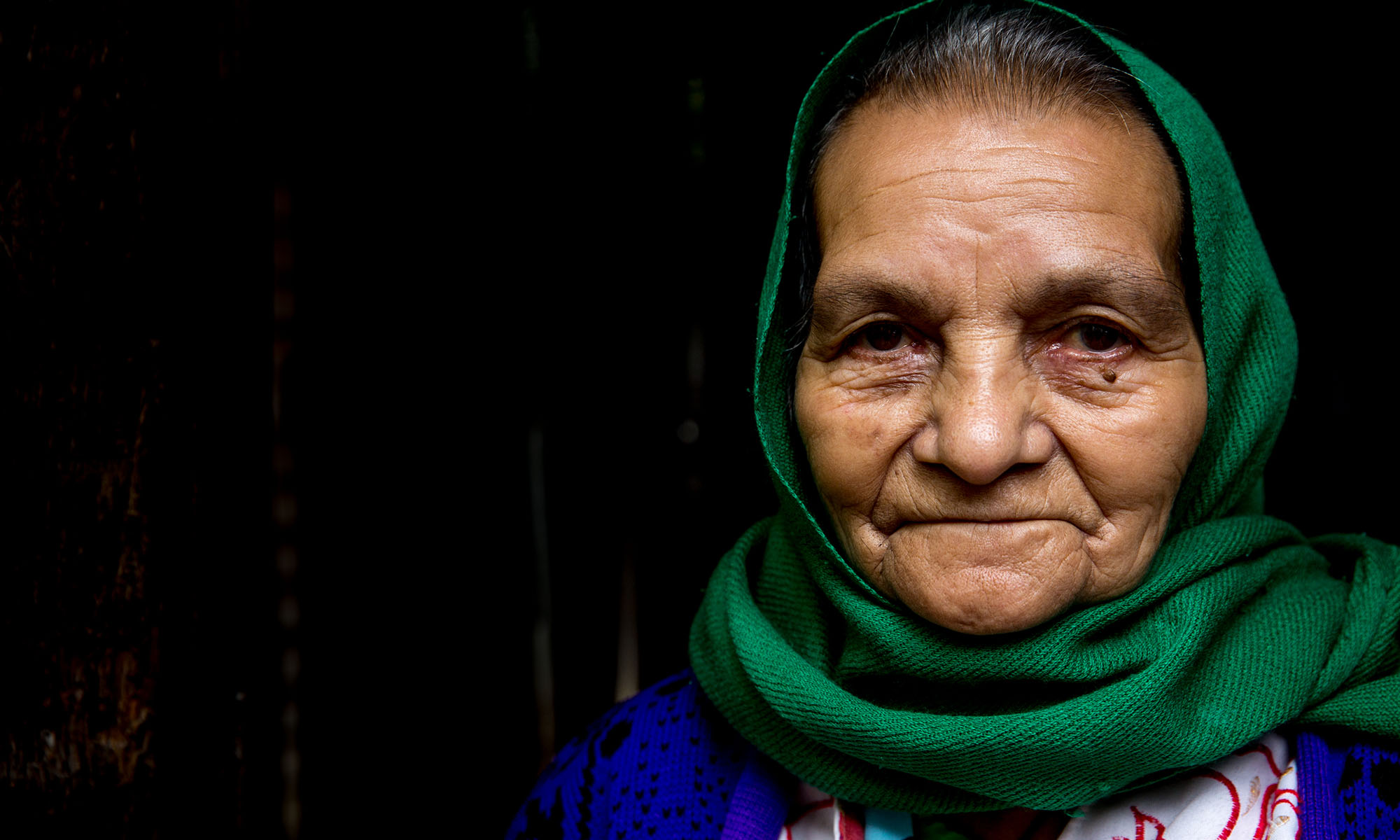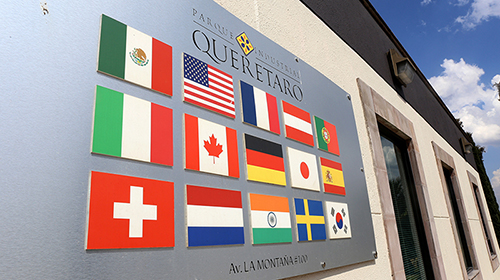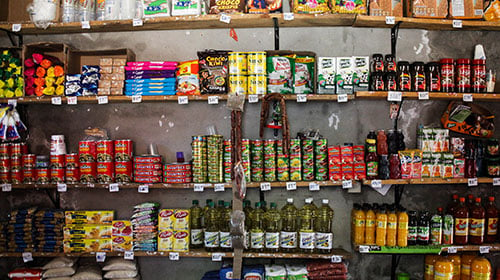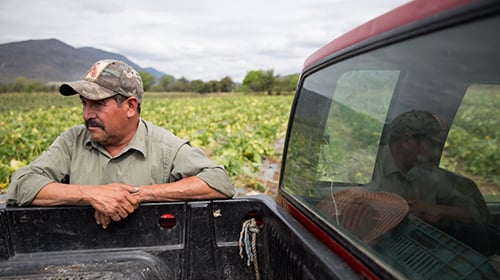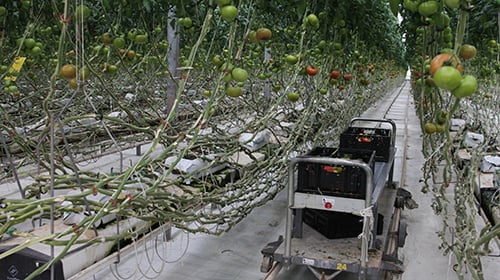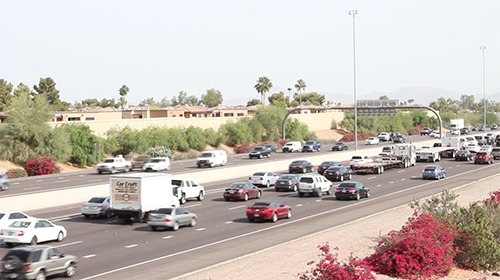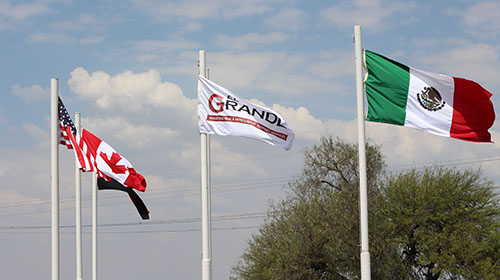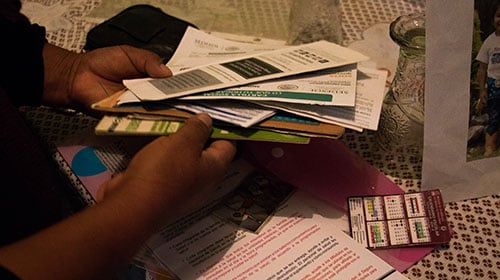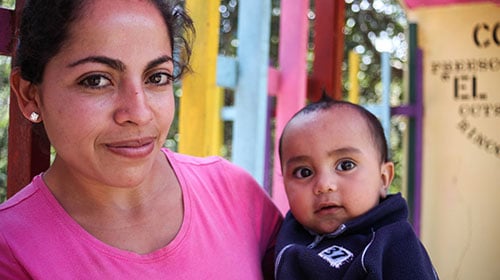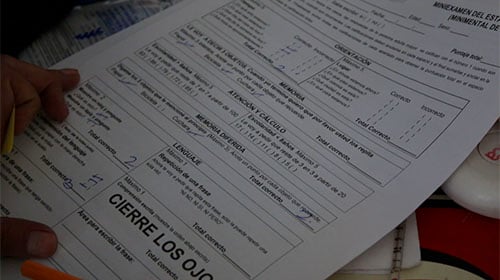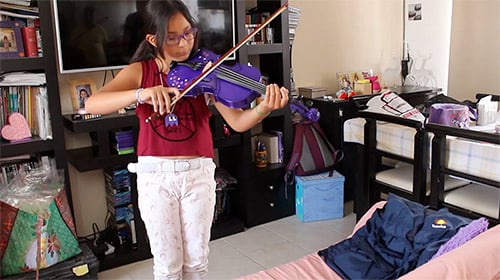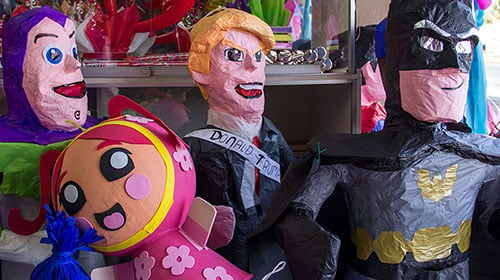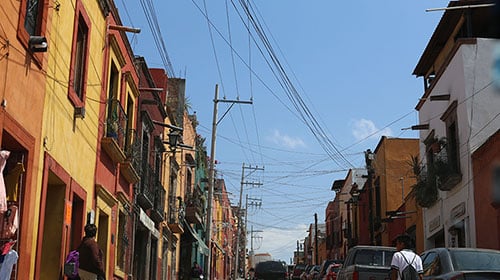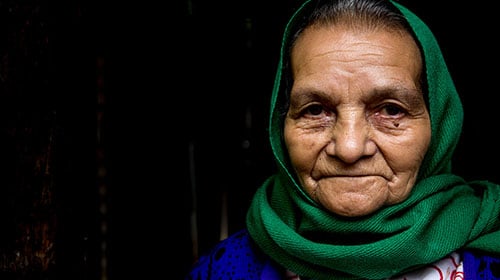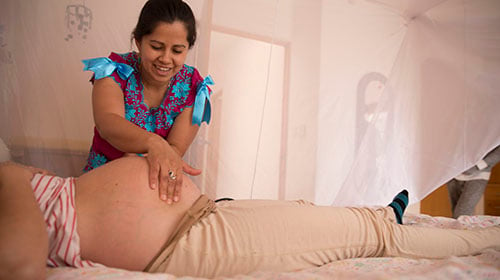Women left behind as men leave Mexico for work
By Courtney Pedroza / Cronkite Borderlands Project
Thursday, Oct. 12, 2017
It’s a decades-old story: Mothers in Mexico lose their children to immigration and better opportunities in the north. But for the mothers left behind the story is never old and always personal.
Many haven’t seen their children for years, even decades. Some have received news that their children have died. Still, they depend on their sons and daughters or even grandchildren to support them through money transfers called remittances.
Some are wired money home almost weekly; others receive funds sporadically; and some have stopped receiving money altogether, leaving families struggling to make ends meet in communities with few good job opportunities.
Remittances are not only important to families but are an important source of foreign income for Mexico, where half of its 130 million residents live in poverty. In 2016, $27 billion was sent as remittances to Mexico, most of it coming from workers in the U.S., according to the Bank of Mexico. In fact, remittances passed oil as a primary source of foreign income in 2015.
Remittances were thrust in the spotlight when U.S. President Donald Trump took office, saying he might confiscate or tax them to pay for construction of a wall between Mexico and the United States. The pronouncement prompted a rush to remit and left those who count on them worried.
These are the faces of some of the recipients of those remittances, the faces of some of the mothers left behind.
Agapita Chavez Maldonado has five sons. Two who work in the United States – one in Kentucky and one in Georgia — send her money. Since the election of President Donald Trump, who has suggested taxing such remittances to pay for a border wall, the amount of money sent from workers in the U.S. to relatives in Mexico has increased dramatically. In November, $2.4 billion was sent from the U.S. to Mexico — a 24.7 percent jump from 2015, according to Mexican central bank data reported by Reuters, as Mexicans working in the U.S. rush to send as much home as possible before any potential policy changes. (Photo by Courtney Pedroza/Cronkite Borderlands Initiative)
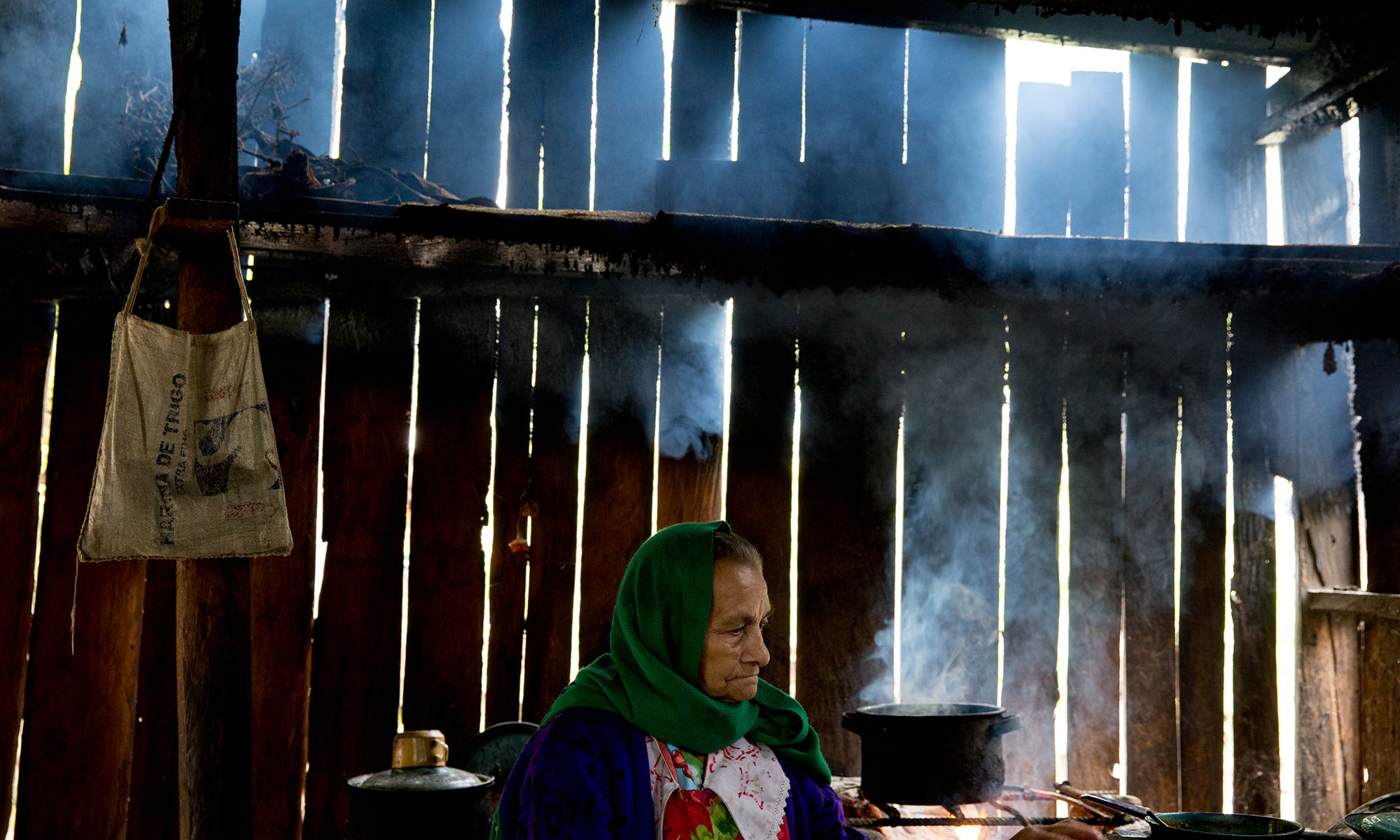
Chavez cleans her kitchen in Tancama, in the highlands of Queretaro, Mexico, where she has lived all her life without many sources of income. She said two sons who left for work in the United States in order to support the family send whatever they can spare, usually $100 to $200 every two to six months. The money helps the family buy necessities and support itself. The sons, both undocumented, have been gone for 11 and 13 years. (Photo by Courtney Pedroza/Cronkite Borderlands Initiative)
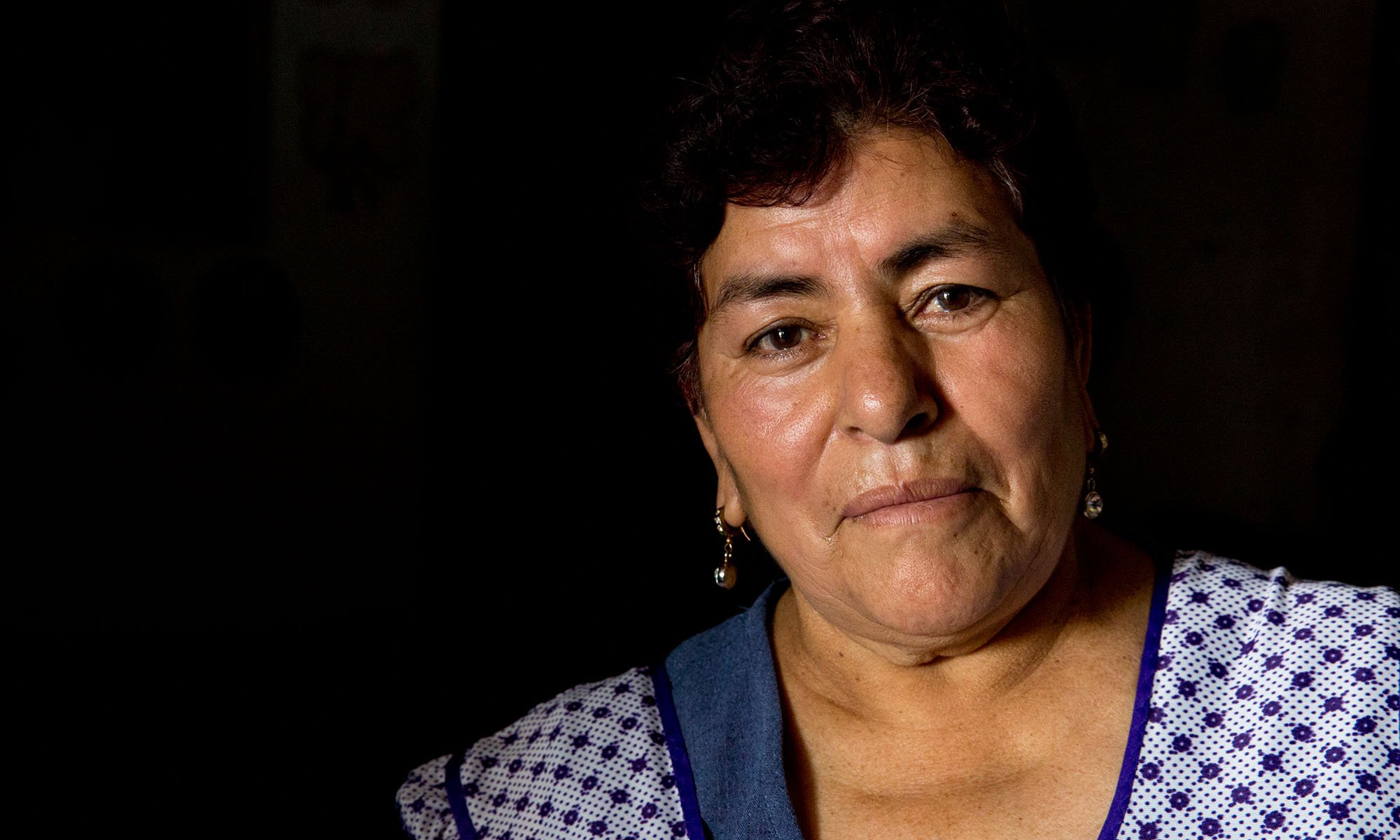
Efigenia Rodriguez Cecilia is a mother of five with one son in the United States who sends remittances to her every two weeks, when he is paid. He has two U.S.-born daughters whom Rodriguez has only seen online over video calls. During Donald Trump’s campaign for president he said that Mexico would pay for a “big, beautiful wall” that would separate Mexico and the United States, even if that meant taxing remittances to Mexican families from the U.S. (Photo by Courtney Pedroza/Cronkite Borderlands Initiative)
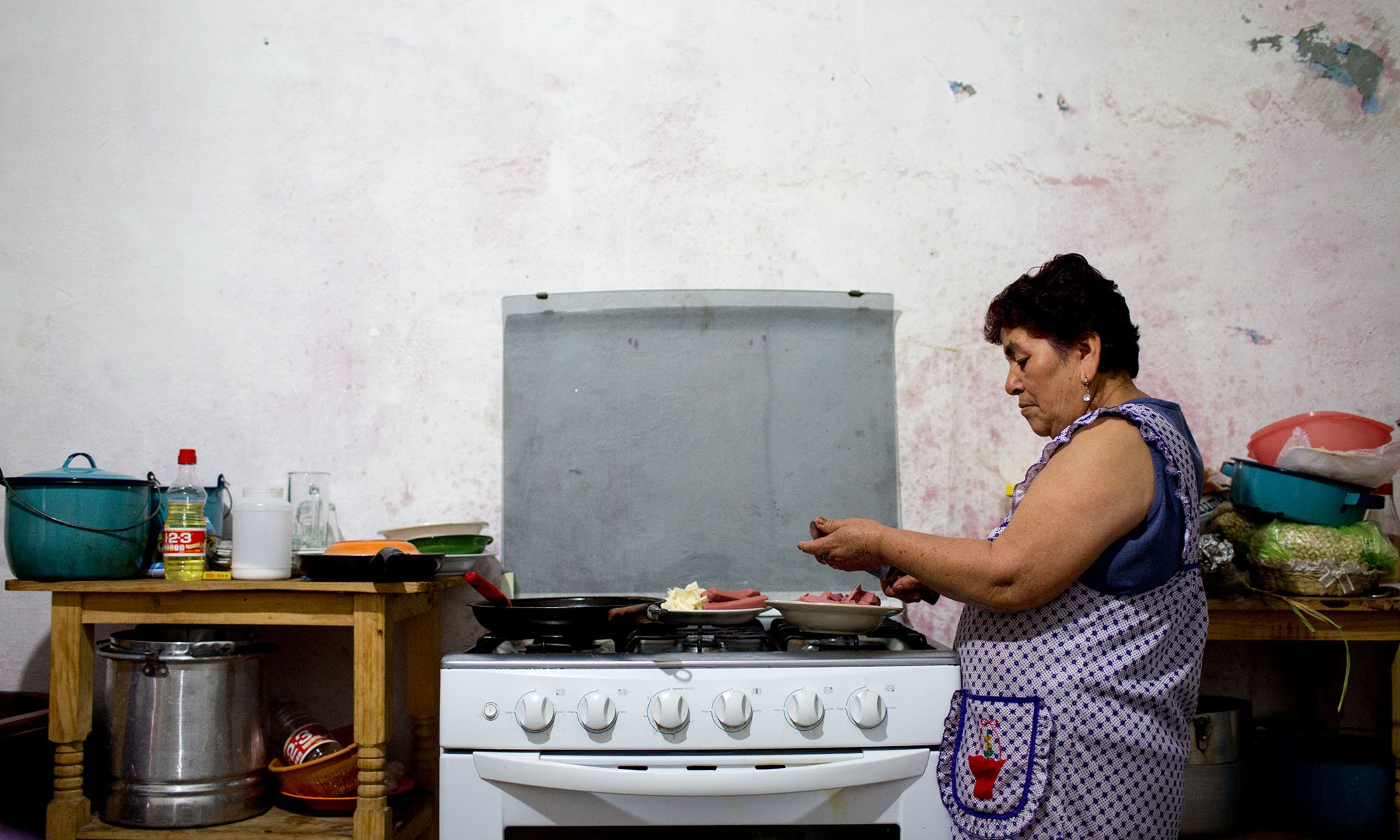
Rodriguez makes lunch for her family in the town of Caleras, Mexico. Her son has been in the United States for over 20 years, in San Antonio. He is an undocumented worker and she worries for his safety after seeing news stories and hearing from people who have been deported. She doesn’t want him to be separated from his daughters. He first left at age 16, came back home then left for good two years later. “He always had that idea that he should help us. We work to survive. That’s why he left. He said, ‘I’m leaving so I can help you,’” Rodriguez said. (Photo by Courtney Pedroza/Cronkite Borderlands Initiative)
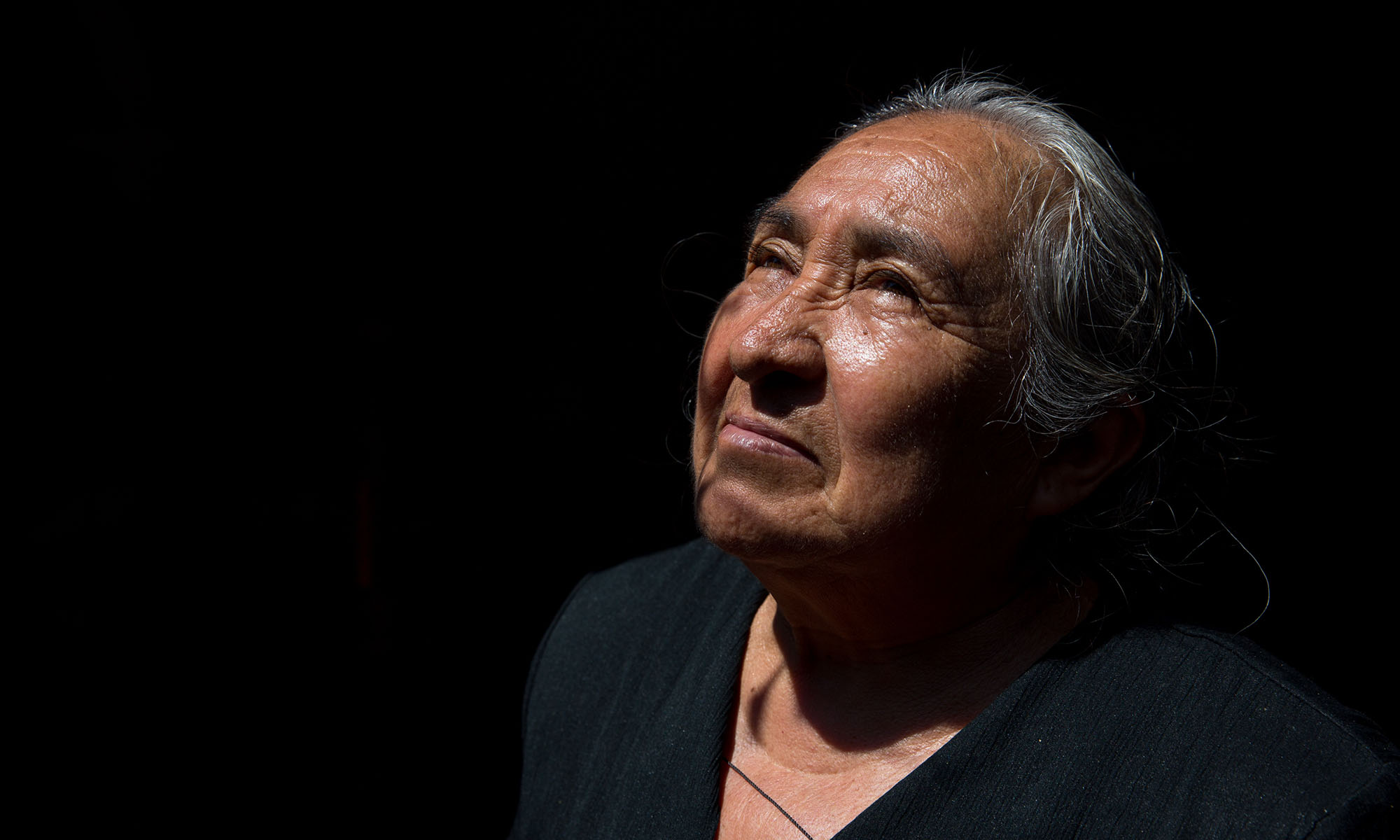
Maria, who asked that only her first name be used, is a mother of two daughters, and two sons who have lived in the United States over the last 30 years. Her children have American-born children of their own, in Georgia and Houston. Her grandchildren take music lessons and play sports. The remittances they send home have been used to pay their father’s eye operation and medical expenses. In Maria’s home state of Queretaro, $460 million was sent to families in 2015, according to the Bank of Mexico. (Photo by Courtney Pedroza/Cronkite Borderlands Initiative)
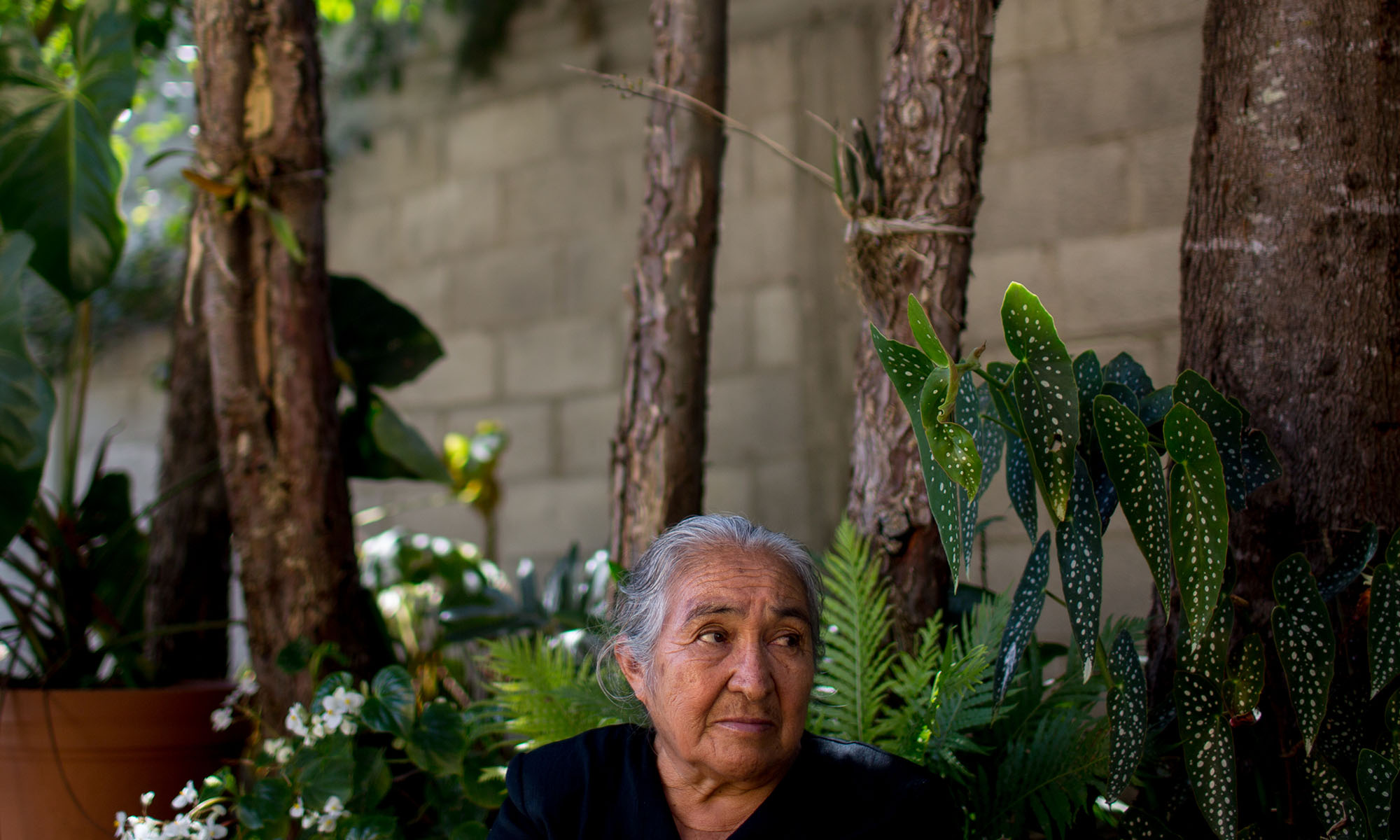
Maria sits in her back yard in a small pueblo outside of Jalpan, Mexico. Maria said a third son died after not receiving medical treatment for a b brain aneurysm in the United States. He returned to Mexico for surgery but did not recover. Now, only Maria’s two daughters remain in Mexico with her and her husband. The couple made sure their children got an education, but even well trained and educated they still couldn’t make enough money and went north for the better opportunities. “Of course I was afraid,” Maria said. “I just stayed behind praying for them. Praying to God. I didn’t want them to go. I was left behind crying… afraid that something would happen to them on the journey.” (Photo by Courtney Pedroza/Cronkite Borderlands Initiative)
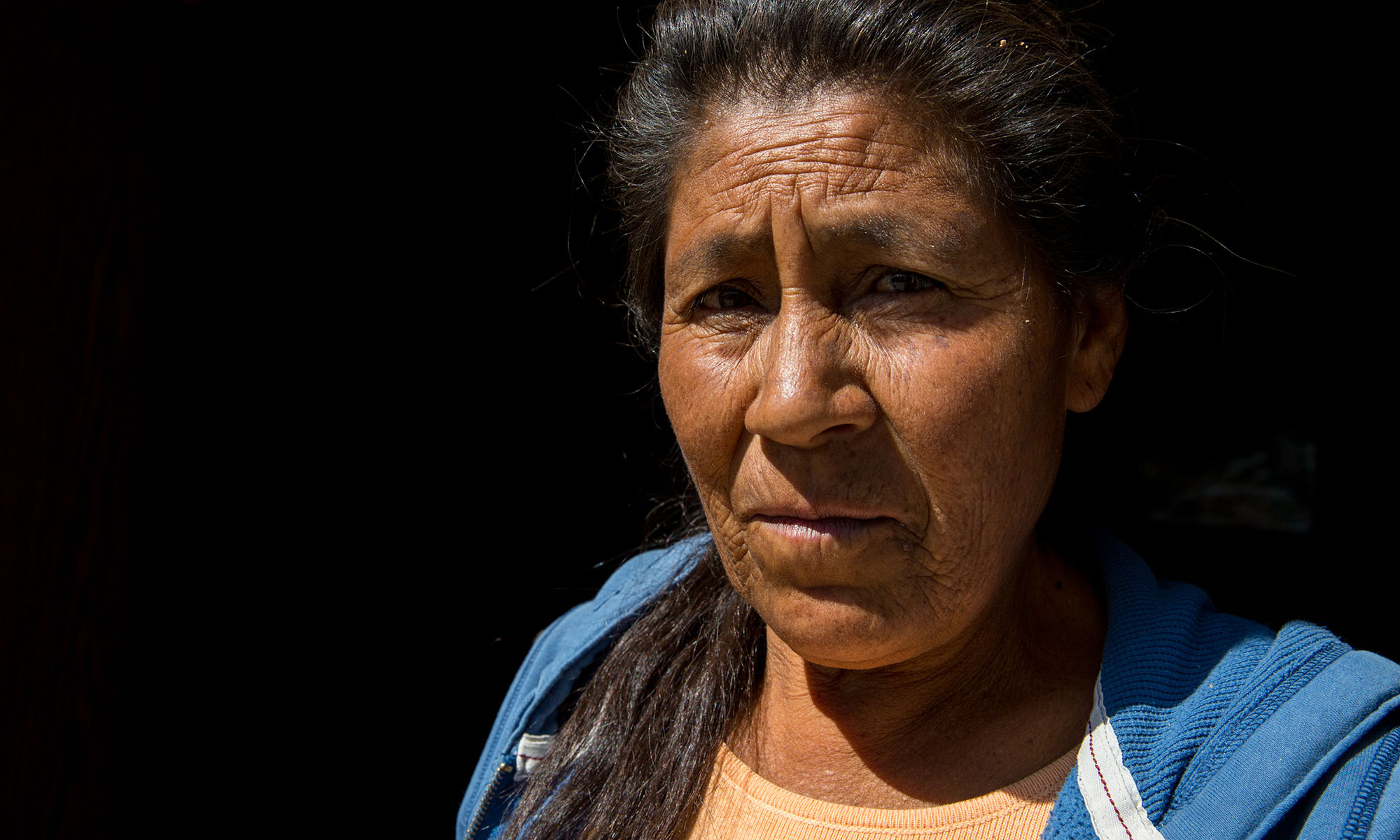
Licea Antonia is a mother of five whose son is working in Florida, installing dry wall. Money he sends home helps pay for a house and the necessities to support his children and family back home. Antonia said she hopes her son will return to Mexico as soon as possible, as he had planned. But with the recent decreased value of the peso, each dollar earned in the U.S. goes further to help family members in Mexico. (Photo by Courtney Pedroza/Cronkite Borderlands Initiative)
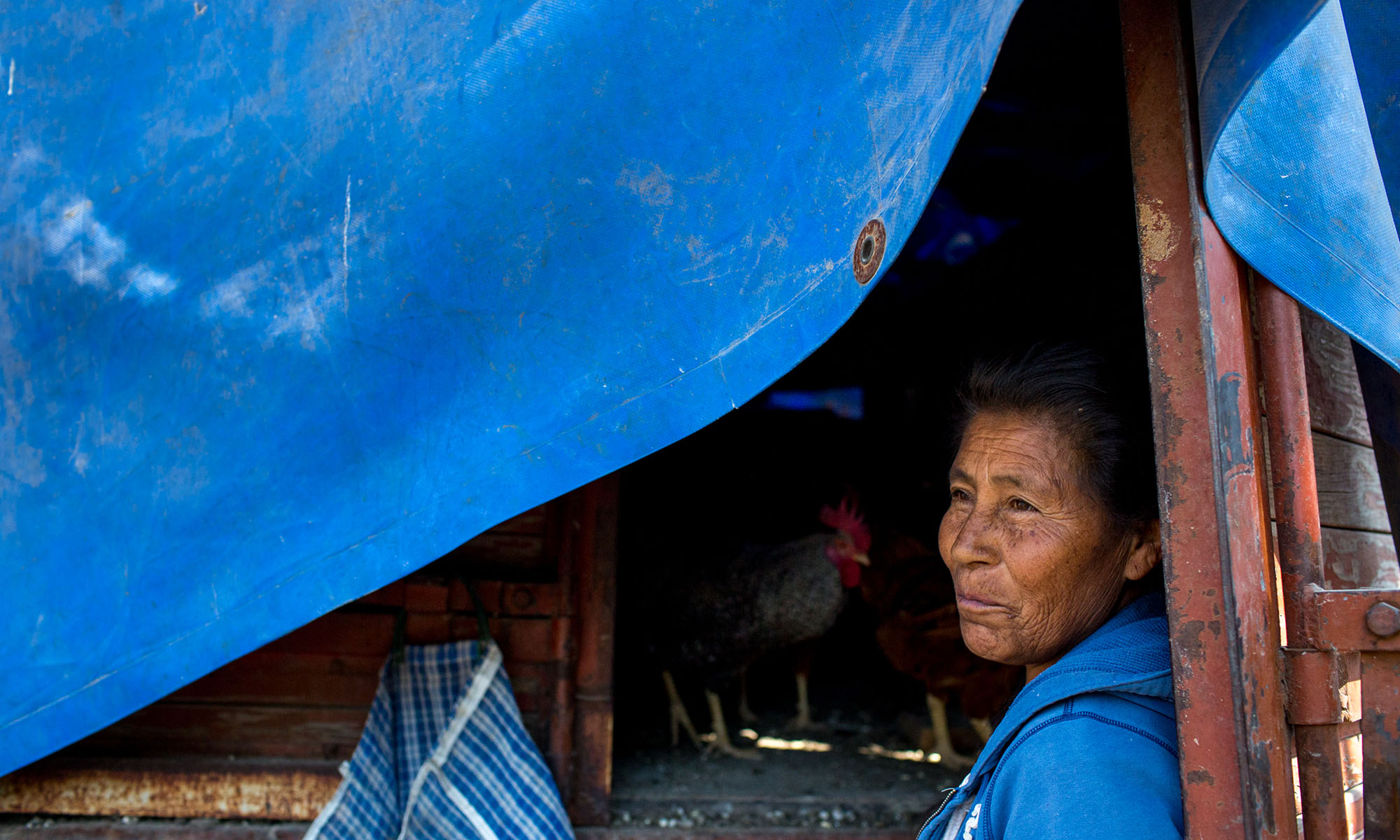
Antonia gazes outside while feeding the chickens she sells to help make ends meet. Like most mothers here, she worries her son will be deported from the U.S., but if it happens, she hopes it is after he has earned enough to build a house for his family. Antonia helps her son’s wife care for their three children. He calls home every week and tells Antonia he is fine. “It hurts me that’s he’s over there. The little one doesn’t know him. He was just a baby when he left,” she said. “I ask him (the 2-year-old), ‘Donde esta papi?’” imitating the boy, she holds her hand as a phone up to her ear. (Photo by Courtney Pedroza/Cronkite Borderlands Initiative)
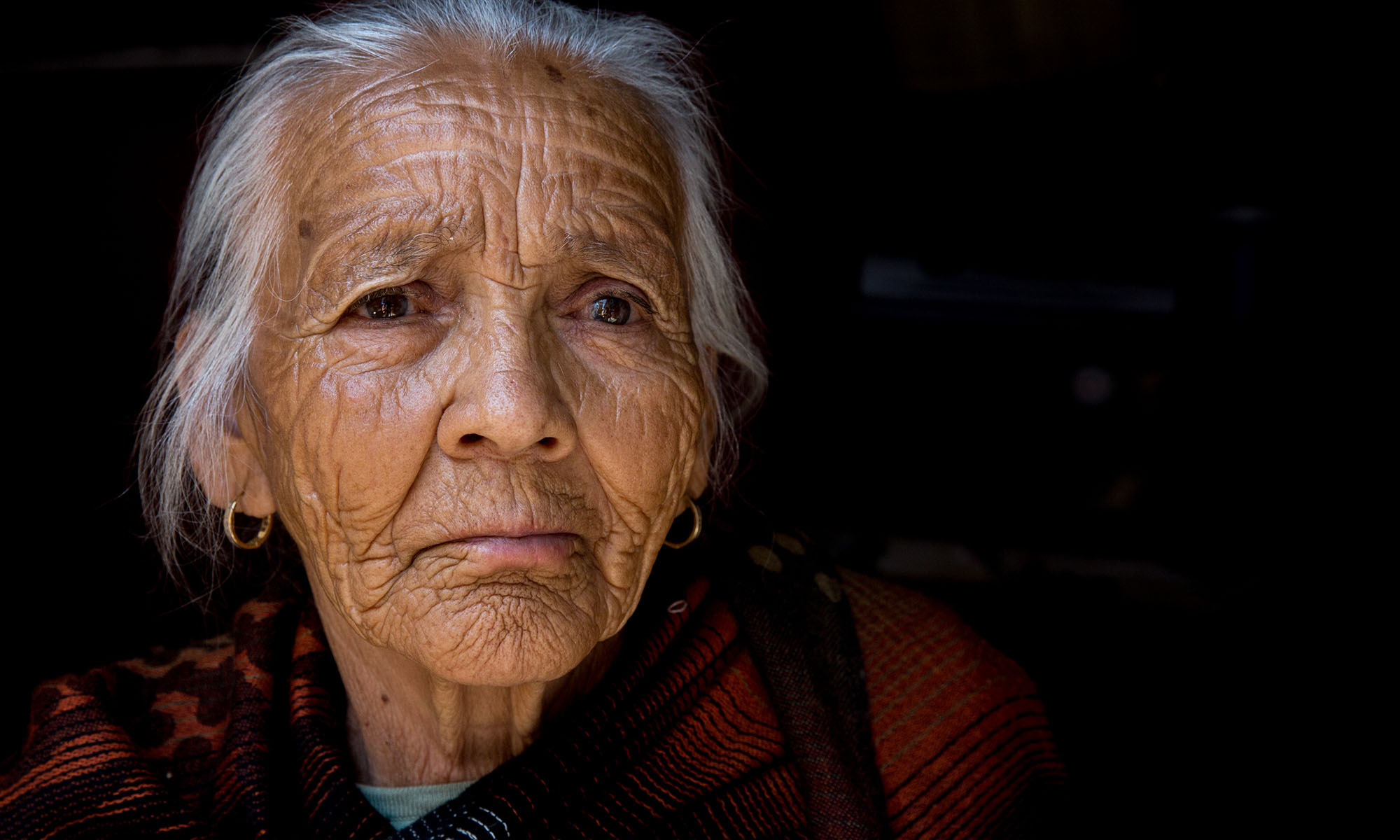
Leonor Rojas Garcia is a mother of six with two sons and a daughter living in the United States. They do landscaping, highway construction and house cleaning. In 2016, $27 billion was sent to Mexico in the form of remittances, according to a Reuters report on Bank of Mexico data. The National Population Council estimates one of every 10 Mexican families relies on such remittances. (Photo by Courtney Pedroza/Cronkite Borderlands Initiative)
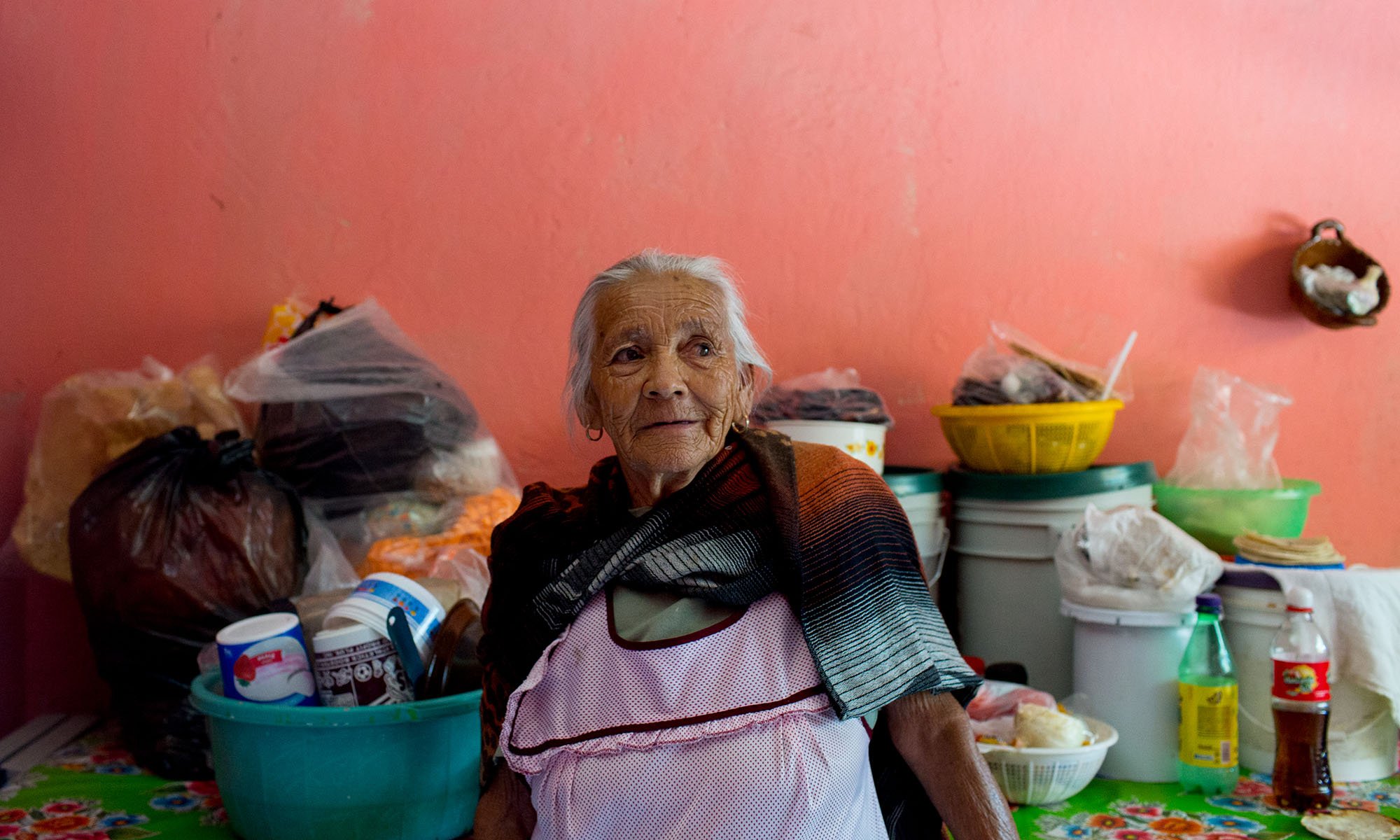
Rojas in her kitchen. She does no longer works and she and her husband rely heavily on remittances from their children, in addition to a little government support. Her children crossed the border in the 1980s, became legal, documented immigrants during the Reagan administration and are now U.S. citizens with their own American grandchildren. Rojas has about 15 grandchildren and great-grandchildren who are U.S. citizens, including one who did military service. Because the family can cross the border legally, they are able to visit and were home at Christmas, but Rojas wishes she could see them more. “One day I’m going to die, one day, and I’m not going to see my children anymore,” Rojas said. (Photo by Courtney Pedroza/Cronkite Borderlands Initiative)
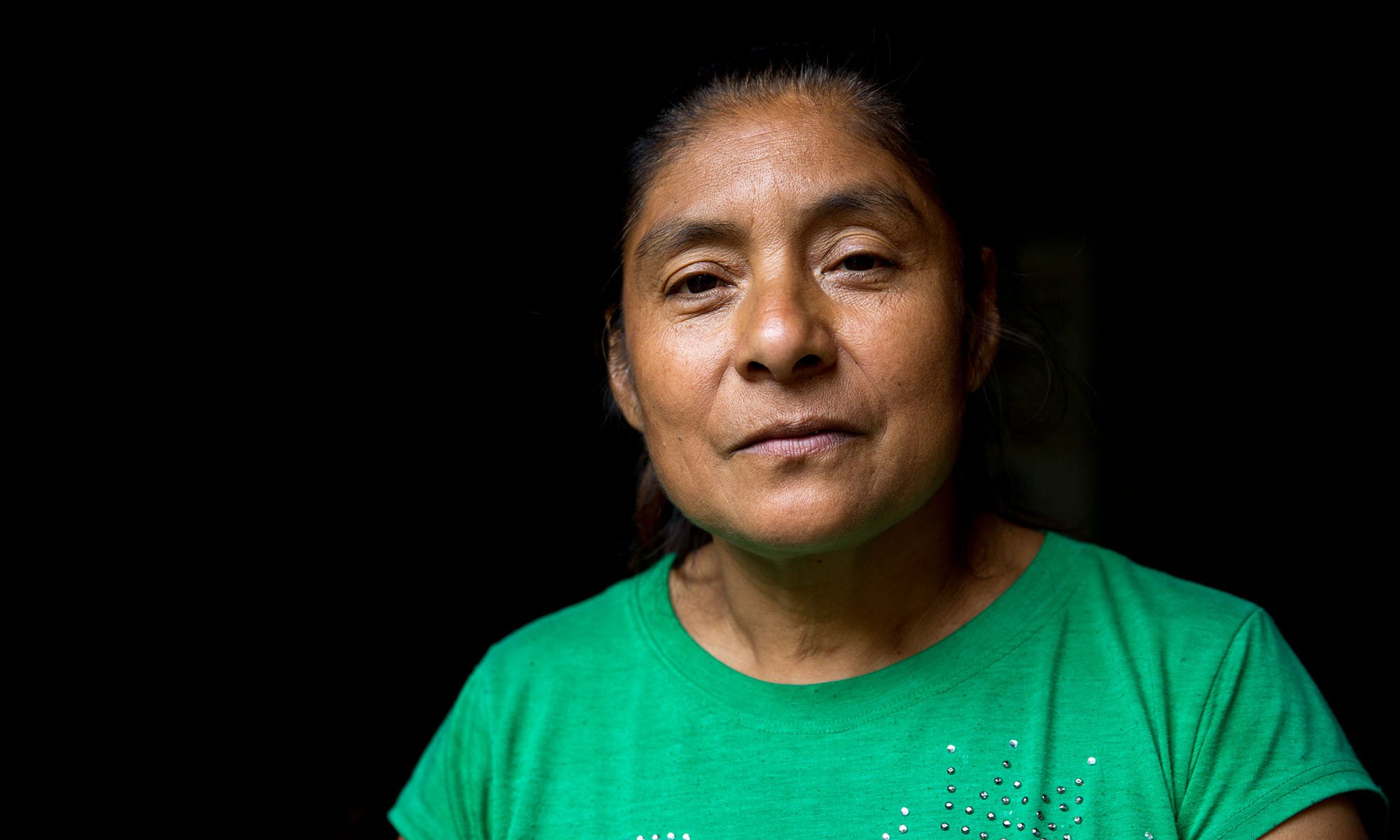
Herlinda Martinez has five children including three daughters living in the United States, but she doesn’t know where exactly. They sent money when they first went north but they don’t anymore. Mexican immigrants in the U.S. often have immediate family living with them, which can require the bulk of their income. They then send whatever they can spare to relatives in Mexico. (Photo by Courtney Pedroza/Cronkite Borderlands Initiative)
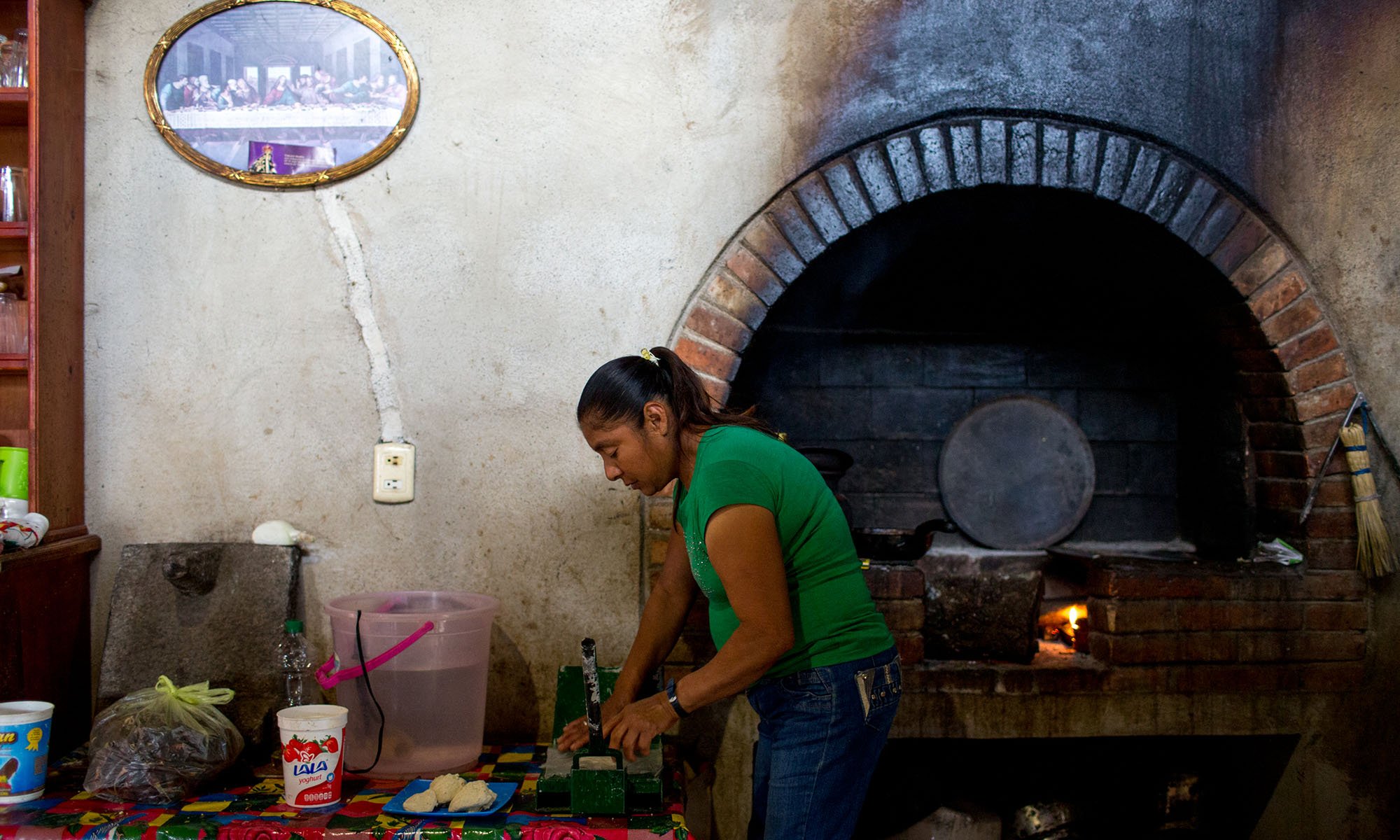
Martinez makes tortillas in her kitchen. Since her daughters no longer help support her in Tancama, Mexico - an area with few job opportunities - she works as a chef for tourists in a nearby eco-lodge. Martinez doesn't remember when her children left to find work in the U.S., some time between five and 10 years ago. Because they are undocumented, they can’t find work easily. She said she hasn’t spoken to them in eight to 12 months. When asked if she missed her daughters she said, “Of course. A lot… I can’t see them here because they can’t come back and forth.” (Photo by Courtney Pedroza/Cronkite Borderlands Initiative)
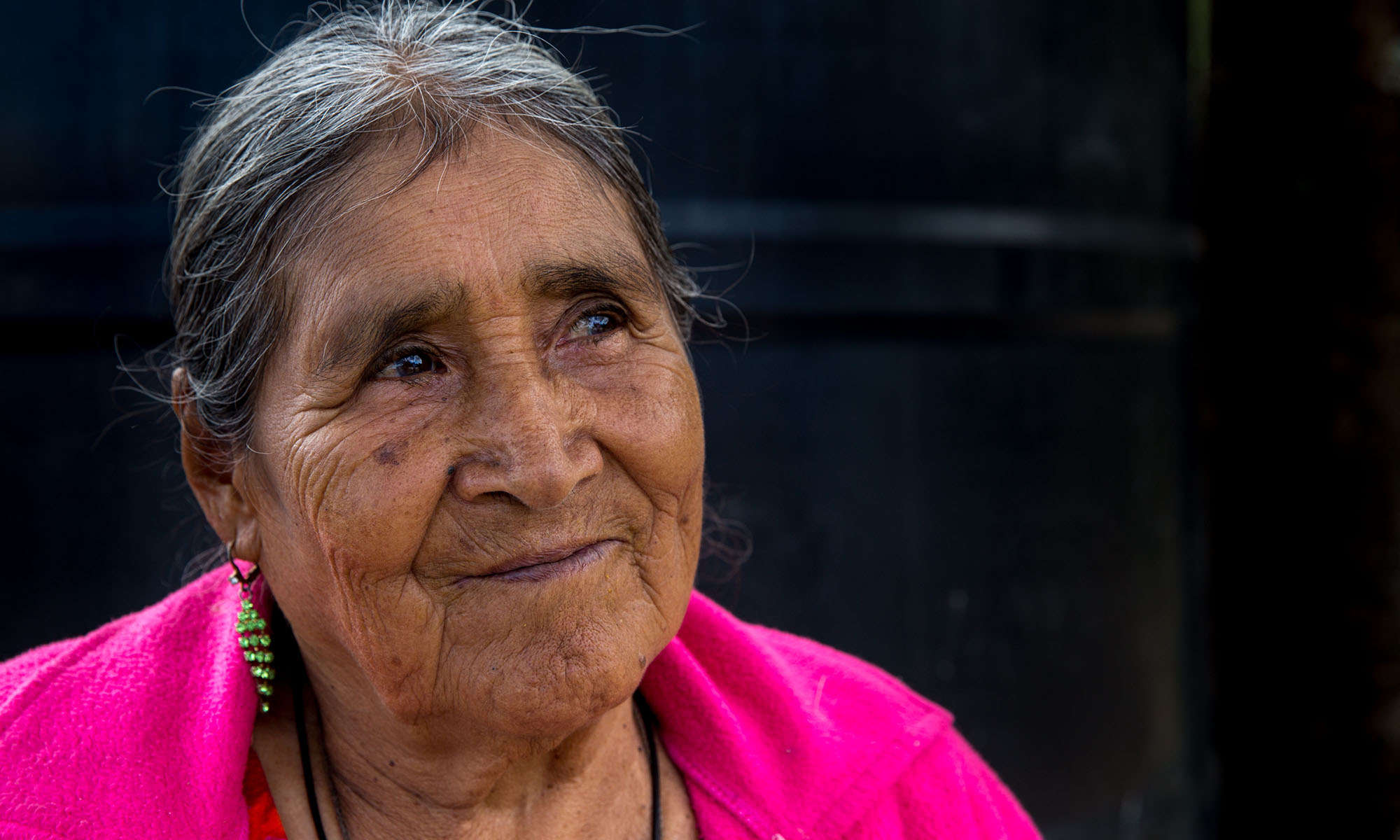
Maria Encarnación Mendoza Gonzales is retired and receives remittances from her grandchildren in the U.S. and support from her family in Mexico. She lives off the highway between Jalpan and Pinal de Amoles. Her son worked in the U.S. but drowned at age 18 in Florida in what she was told was a work accident. “I felt bad and very sad when my son left, and I never saw him alive again.” In 2015, remittances surpassed oil industry revenue as a source of foreign income for Mexico, underscoring the country’s dependence on money sent home by Mexican citizens living in the United States. (Photo by Courtney Pedroza/Cronkite Borderlands Initiative)
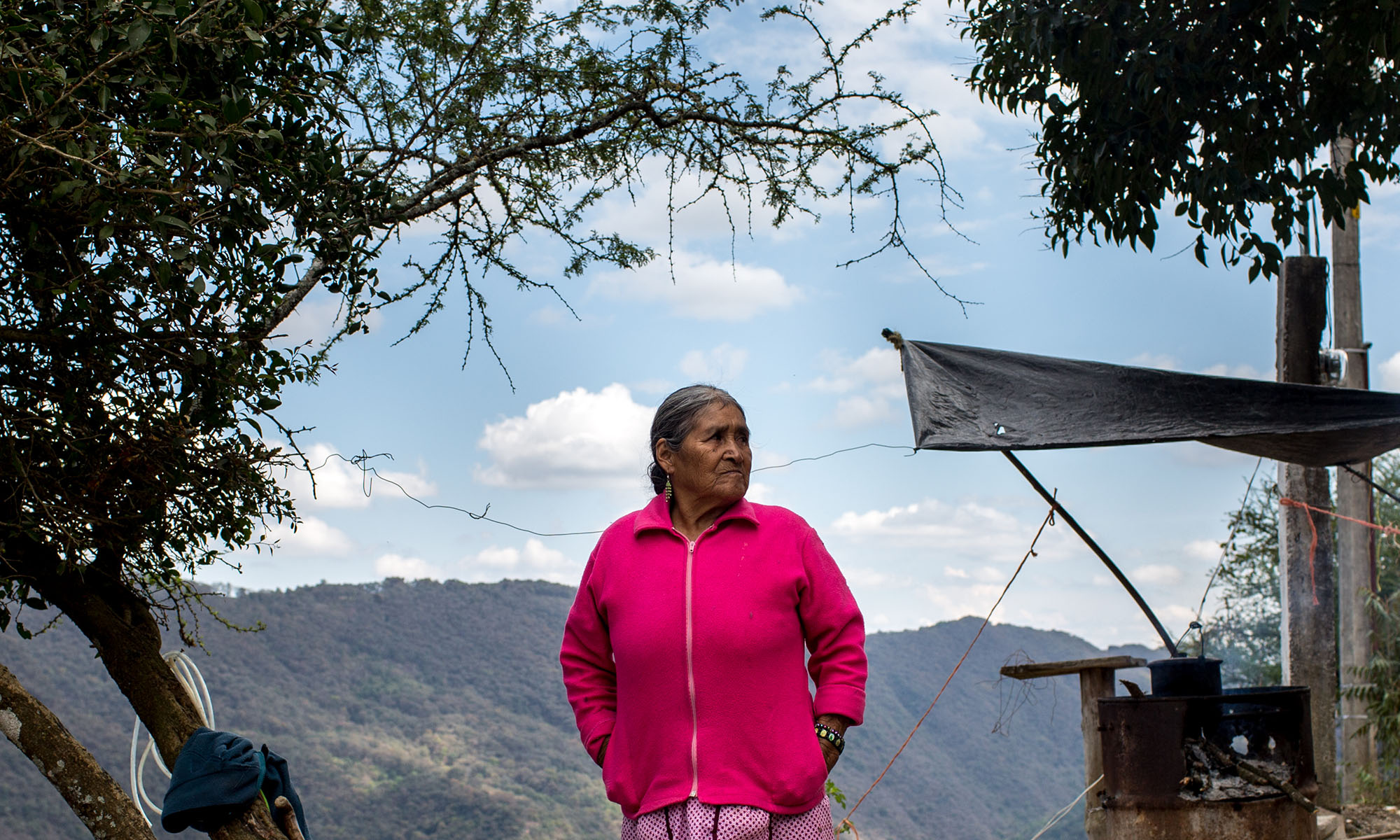
Mendoza stands by the stove outside her home overlooking the Sierra Gorda Biosphere Reserve. Her granddaughter, who she has not seen in 15 years, sends her money from the U.S. where she now has five grandchildren. She worries about them since Trump’s election and his statements on undocumented immigrants and remittances. “Only God can watch over them. We are waiting to see if they will be deported. Right now they aren’t safe over there, the poor things,” she said. (Photo by Courtney Pedroza/Cronkite Borderlands Initiative)
